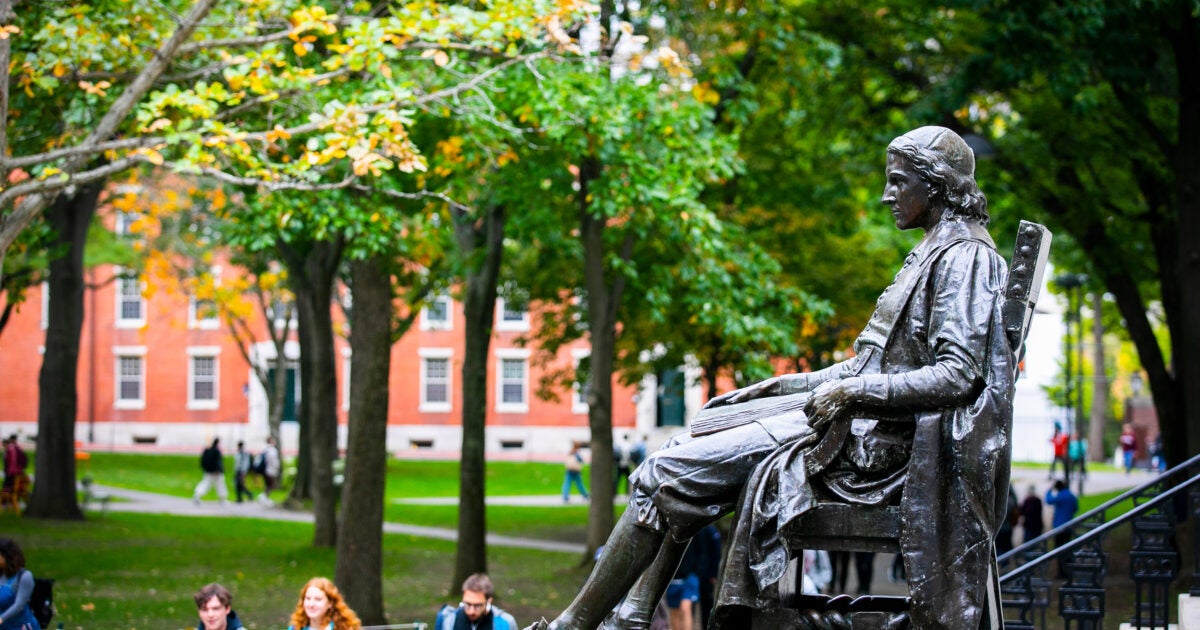
Harvard will create a Study of Psychedelics in Society and Culture with a gift from the Gracias Family Foundation, the University announced today. The study, an interdisciplinary effort across the Faculty of Arts and Sciences, Harvard Law School, and Harvard Divinity School, seeks to transform the psychedelics research landscape by producing cutting-edge scholarship and convening faculty, students, and experts to engage in discussion around their far-reaching implications.
“We are thrilled to have the opportunity to bring students, faculty, and researchers together around the important issue of how psychedelics impact our society,” said Robin Kelsey, Shirley Carter Burden Professor of Photography and dean of arts and humanities. “Harvard is uniquely poised to become the most exciting place to debate, discuss, and innovate in this area.”
The $16 million gift will include an endowed professorship with a broad focus on human health and flourishing, as well as research support across the University. It comes at a time when interest in psychedelics has risen in recent years among the scientific and academic communities, driven by findings that they may help treat disorders such as PTSD, depression, and addiction when used in conjunction with therapy. In 2021, the Petrie-Flom Center for Health Law Policy, Biotechnology, and Bioethics at HLS established its Project on Psychedelics Law and Regulation (POPLAR) to examine the ethical, legal, and social implications of psychedelics in research, commerce, and therapeutics. In addition, the Center for the Study of World Religions (CSWR) at HDS examines psychedelics as they relate to altered states of consciousness, the relationship of mind and matter, and the global history of spirituality and religion.
Michael Pollan, professor of the practice in Harvard’s Creative Writing program and Lewis K. Chan Arts Lecturer, has explored deeply the complex history of psychedelics at Harvard and in America. “This is a visionary gift, in that it is the first to take the so-called psychedelic renaissance beyond medicine, by recognizing the importance of the humanities in exploring the impact and potential of these remarkable substances.”
The Study of Psychedelics in Society and Culture will approach the field from a range of humanistic and social scientific viewpoints including law, policy, ethics, religion and spirituality, the nature of consciousness, and art and literature.
Convening experts for interdisciplinary conversation and debate will be key. The Mahindra Humanities Center, the Center for the Study of World Religions, and Petrie-Flom plan to host several seminars, public-facing events, and a world-class conference. The gift will also fund initiatives to support training for emerging leaders in this space.
“One of Harvard’s greatest strengths is our ability to bring together experts from various fields to engage in vibrant discussions that advance scholarship from multiple angles,” said Bruno Carvalho, interim director of the Mahindra Humanities Center. “This initiative will give us the space to explore and enrich public dialogue around psychedelics, including their potentials, as well as ethical and social implications.”
Additionally, the gift will support the growth of existing programs at the Center for the Study of World Religions’ Transcendence and Transformation Initiative as well as fund a new set of fellowships, both at the CSWR and the MHC.
These fellowships in Psychedelics, Transcendence, and Consciousness Studies, based between Harvard and the University of California, Berkeley, will engage researchers from different fields to forge cross-disciplinary research.
The Gracias Family Foundation has long been interested in the possibilities of psychedelics for therapeutic use, funding scientific research into efficacy and treatment methods. Antonio Gracias, president of the foundation, is the founder, chief executive officer, and chief Investment officer of Valor Equity Partners.
“Harvard is the ideal place to explore the topic of psychedelics from new angles,” said Gracias, “and to craft a framework for their legal, safe, and appropriate impact on society.”
